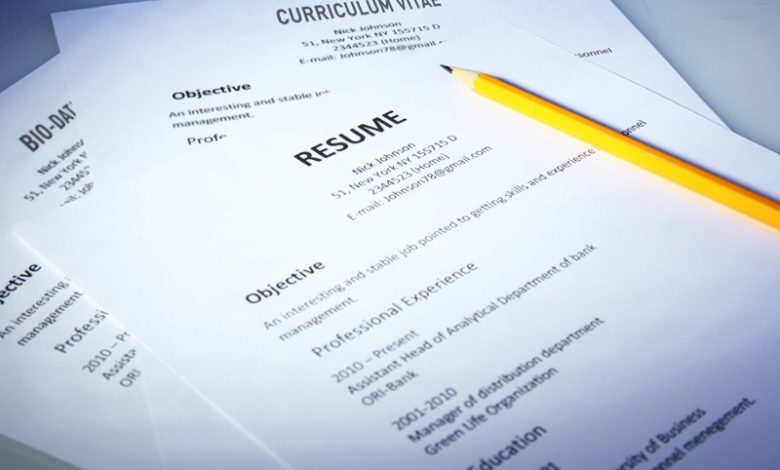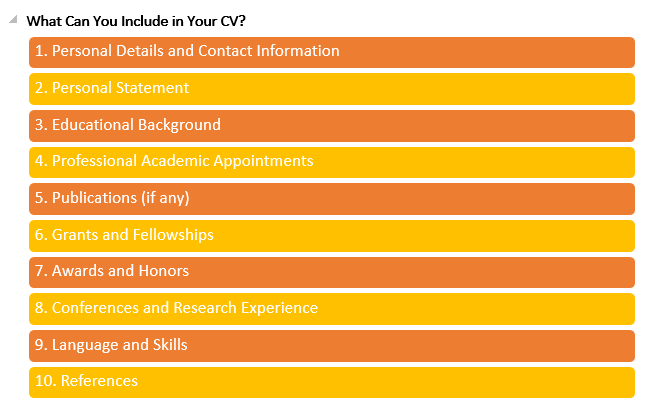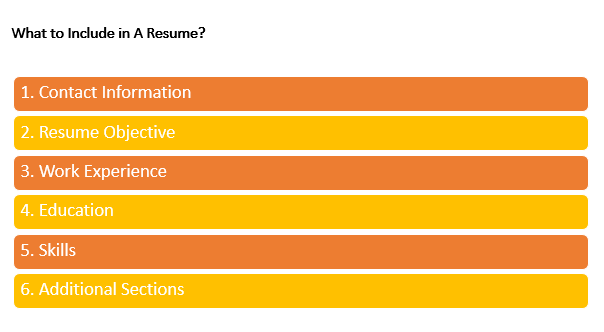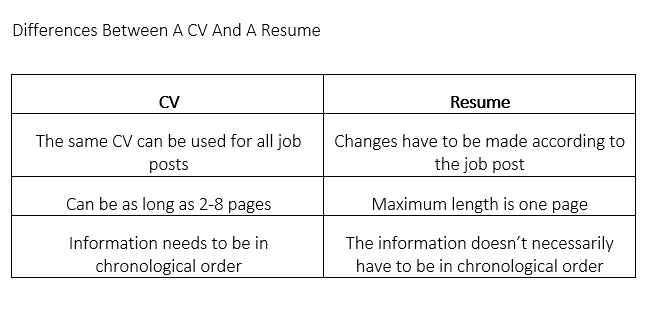
Are you applying for a job you’ve been wanting to secure for as long as you can remember? That’s totally understandable. Right after graduation, everybody starts searching for a job that best fits with regard to their degree. Most students have already endured the hardships of having a work-life by working part-time during their college, in order to meet expenses, but these are hardly their dream jobs.
When you’re stepping in the professional life, where establishing a career is your main priority, the first step to achieve that is having an outstanding CV or Resume. The most common question that wanders in every mind is, “Should I make a CV or a Resume?”
We hear your cry for help, and we’re here to clear all confusion you may have about CV and Resumes. Hence, let’s find out what the primal difference between both of these is.
Table of Contents
What Are a CV And Resume?.
CV..
What Can You Include in Your CV?.
Resume.
What to Include in A Resume?.
Differences Between A CV And A Resume.
The same CV can be used for all job posts.
Changes have to be made according to the job post.
Can be as long as 2-8 pages.
Maximum length is one page.
Information needs to be in chronological order.
The information doesn’t necessarily have to be in chronological order.
What Is More Preferable?.
Is Resume the Same as Cover Letter?.
Conclusion:
What Are a CV And Resume?
Have you ever given this a thought? Why do Brits apply with a CV while Americans apply with a Resume? And Australians apply with both? But first, let’s learn what a CV and Resume actually are.
CV
A CV (Curriculum Vitae) is a document that contains extensive detail about your previous achievements in life, lengthier than a basic career biography. The CV will enlist the level of education you have received, in what year, and from which institute.
Moreover, it will include all other sorts of accomplishments such as awards, honors, medals, certifications, publications, etc. All of this information will be laid out in two to three pages overall and should be included categorically so that the employer can easily take an overview of your full working career, starting from the basics; where you received your primary and secondary education from.
CV’s are mostly static and do not vary much when it comes to applying for different job posts, the difference usually come in cover letters.

Resume
On the other hand, resumes are brief and concise. A resume will not usually be lengthier than one page. A resume is comparatively more difficult to create since it has to be short and needs to stand out from that of other applicants as well, and achieving this may not be an easy task for all. But there are always Resume Writing Service providers available that can be sought for help.


What Is More Preferable?
Many people get confused when it comes to deciding which one to use when applying for a job, but this depends largely on the country you’re residing in. For instance, in Europe, the term CV is used to describe an equivalent of a US resume. The concept of having a resume does not exist there.
Whereas, in South Africa and Australia, CV and Resume are recognized as synonyms that can be used interchangeably, hence, there is no compulsion to use any specific one. However, in South Asia, some job seekers might need to create a biodata.
This document is slightly different than a CV and Resume both. How you may ask? Biodata is a document that contains more personal data about the applicant. This data can be the date of birth, gender, race, ethnicity, marital status, and salary. This is most commonly used in India and Bangladesh. Although, keep in mind that if the employer doesn’t specifically ask for the biodata, then you can use either a CV or a Resume.
And if you’re still unsure of what to do, you can approach Professional Copywriting Services and ask them which document will be most suitable depending on the firm and the job post that you’re applying for.
Is Resume the Same as Cover Letter?
Some people even confuse a resume with a cover letter. A cover letter provides detailed information about why you are qualified for the job that you’re applying for, this information is very specific, however, a cover letter is supposed to complement your resume, not duplicate it entirely.
Conclusion:
Highlighted above are the differences that are the most common between a CV and a Resume. Hence, if you’re stepping into the work-life you’ve been dreaming of, or have not been dreaming of, but have to since you have to get by, these tips can help you create your own CV and decide accordingly that which is more suitable for the job that you’re applying for.
And whenever you get stuck in any part of the process, there are online samples, templates, CV and resume writing service providers which can help you and guide you according to your needs. But keep in mind, that this assistance might be a bit costly.
Author Bio: Jeffrey McDavis is a graduate of the University of Minnesota who holds a Ph.D. in Mass Communication and Journalism. He currently works as a content writer for Content Majestic. Alongside that, he volunteers at a senior citizen’s home and teaches guitar to young kids.




